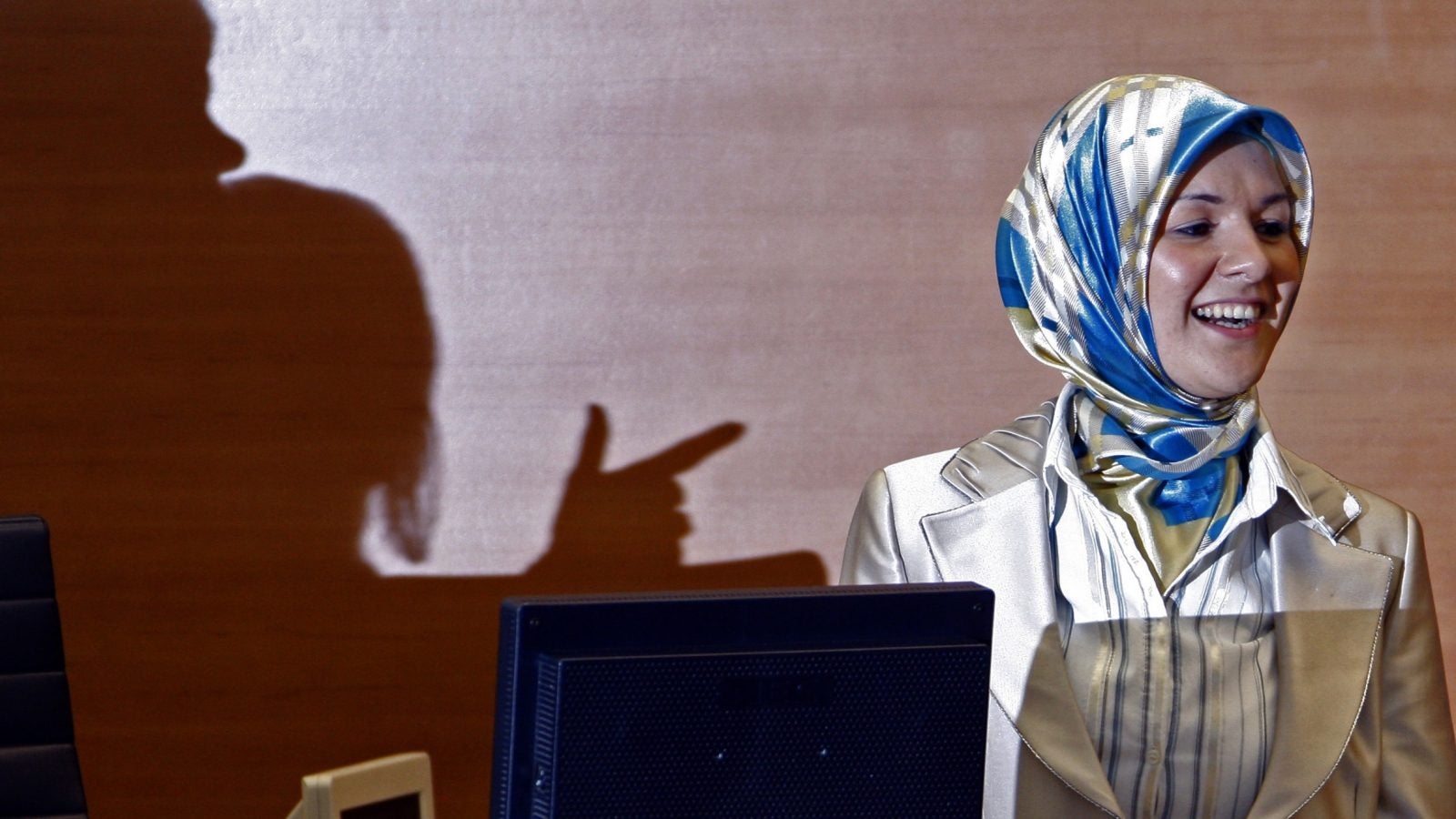Europe has ruled that banning headscarves in the workplace is legal
The European Court of Justice has ruled that banning visible religious, political, or philosophical symbols in the workplace doesn’t amount to discrimination.


The European Court of Justice has ruled that banning visible religious, political, or philosophical symbols in the workplace doesn’t amount to discrimination.
The ruling centers on women wearing the Islamic headscarf to work, which employers can disallow if they have a policy of “neutral” dress, according to today’s ruling.
Banning the headscarf only, but allowing other forms of religious or political dress, is not allowed, the court said (pdf). It also isn’t legal for an employer to base its stance towards headscarves solely on customer complaints. Firms must have clear policies that don’t discriminate between religions or political groups, or allow people to dress as they want.
The ruling comes amid tensions across Europe about the migrant crisis and just before the Dutch election, in which Muslim immigration has featured prominently. The court took its cues from two cases in Belgium and France featuring women who were dismissed for wearing headscarves.
In the Belgian case, Samira Achbita was employed in 2003 as a receptionist by G4S, which provides security and other services. In 2006 she began wearing a headscarf to work, and was told that this contravened an informal company policy of neutral dress. The company then formalised the policy, and when Ms Achbita still continued to wear a headscarf, it sacked her.
Ms Achbita claimed she was discriminated against because of her religion.
In the French case referred to in the court’s decision, a Muslim woman employed as a design engineer was asked to stop wearing a headscarf after a customer complained. The ECJ said the French courts would have to decide whether the company, Micropole, was implementing a fair internal rule, or discriminating against a single employee. It made clear that the wishes of a customer not to be served by an employee wearing a headscarf wasn’t grounds for dismissal of the employee.
A previous judgement ten months earlier on the cases had also concluded that the G4S position was legal. Companies can stop all their employees wearing religious or political clothing, but can’t discriminate between different types or against specific religions, the court said.
The ECJ said the Belgian courts must research whether G4S was indeed simply implementing its policy, or seeking to discriminate against an employee based on their religion. It asked whether Ms Achbita could have been moved to a role that didn’t involve working directly with customers, if the company’s “neutral” public image was the only issue.